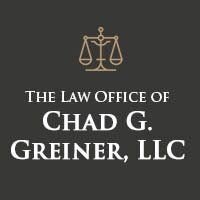Best Land Use & Zoning Lawyers in Georgia
Share your needs with us, get contacted by law firms.
Free. Takes 2 min.
Free Guide to Hiring a Real Estate Lawyer
Or refine your search by selecting a city:
List of the best lawyers in Georgia, United States
About Land Use & Zoning Law in Georgia, United States
Land use and zoning law in Georgia refers to the rules and regulations that govern how land can be used and developed within the state. These laws are mainly set by local city and county governments and are designed to ensure that land is developed in a way that balances private property rights, the public interest, and the environment. Zoning ordinances divide land into different categories, such as residential, commercial, industrial, and agricultural use, and establish guidelines for what type of structures and activities are permitted in each area. The goal is to promote orderly growth, protect property values, and ensure that land use aligns with long-term community planning.
Why You May Need a Lawyer
Navigating land use and zoning laws can be complex, especially for property owners, developers, or prospective buyers unfamiliar with local regulations. Lawyers specializing in land use and zoning can help in numerous situations, including:
- Applying for zoning variances or permits
- Challenging or appealing local zoning decisions
- Dealing with zoning violations and enforcement actions
- Seeking rezoning for property development
- Engaging in land purchase or sale, especially for commercial projects
- Addressing restrictive covenants or easements on property
- Interpreting comprehensive land use plans
- Resolving neighbor disputes related to property boundaries or uses
- Compliance with environmental regulations for land development
- Participating in public hearings regarding land use changes
Local Laws Overview
Land use and zoning in Georgia are governed primarily at the municipal and county level. Each city or county has its own zoning ordinances and comprehensive plans. Some key aspects include:
- Zoning Classifications: Properties are designated as residential, commercial, industrial, agricultural, or mixed-use. Each has specific regulations on the type of activities and structures permitted.
- Rezoning Procedures: Property owners can request to change a property’s zoning status, but must follow a formal application process that typically involves public notice, hearings, and approval by local officials.
- Variances and Conditional Use Permits: Property owners can seek exceptions from zoning rules when there is a unique hardship or special circumstance that justifies a deviation.
- Development Standards: Local ordinances often set requirements for setbacks, building heights, lot size, landscaping, parking, and signage.
- Historic District Regulations: Some localities have special rules for properties located in historic districts, which may restrict exterior changes or demolition.
- Enforcement and Appeals: Local zoning boards or commissions enforce regulations and hear appeals from property owners about zoning decisions or citations.
Frequently Asked Questions
What is zoning and why does it matter?
Zoning is the process of dividing land into different categories to control how land is used and developed. It matters because it helps communities manage growth, protect property values, and separate incompatible land uses.
How do I find out how my property is zoned?
You can determine your property’s zoning designation by checking with your local city or county planning and zoning department. Many jurisdictions offer online zoning maps and lookup tools.
Can I change the zoning of my property?
Yes, you can apply for a zoning change, also known as rezoning. The process involves submitting an application, undergoing public hearings, and obtaining approval from the relevant local authority.
What is a zoning variance?
A zoning variance is an exception granted to a property owner allowing the property to be used in a way that differs from current zoning regulations, usually due to unique circumstances or hardships.
What can I do if I receive a zoning violation notice?
If you receive a violation notice, you should review the citation, consult the local ordinances, and consider speaking with a land use attorney. You may be able to appeal the citation or seek a variance.
Do I need a permit for construction or remodeling?
Most new construction, major remodeling, additions, or changes to property use will require building and sometimes zoning permits from your local government. Failing to obtain proper permits can result in fines or legal action.
What happens at a zoning board or planning commission meeting?
At these meetings, officials review requests for variances, rezonings, and other land use matters. Property owners, neighbors, and the public can present evidence and opinions before a decision is made.
Are there special rules for properties in historic districts?
Yes, properties within designated historic districts often face stricter regulations regarding renovations, demolitions, and exterior modifications to preserve the character of the area.
How do environmental regulations affect land use?
Environmental laws can restrict the use of certain lands to protect wetlands, floodplains, rivers, endangered species, or other sensitive areas. These rules may add additional permitting requirements or development restrictions.
How do I appeal a zoning decision?
If you disagree with a zoning decision, you can file an appeal, typically to a local board of zoning appeals or, in some cases, to the county superior court. The appeals process is governed by local laws and strict deadlines.
Additional Resources
If you need more information on land use and zoning in Georgia, the following resources may be helpful:
- Georgia Department of Community Affairs: Offers information on development and planning standards.
- Local City and County Planning and Zoning Departments: Main source for zoning maps, ordinances, and applications.
- Georgia Municipal Association: Provides guidance on municipal government and planning issues.
- Georgia Planning Association: Professional group with educational materials on land use.
- University of Georgia Cooperative Extension: Educational programs on land development and the environment.
Next Steps
If you are facing a land use or zoning issue in Georgia, start by gathering all relevant documents, such as property deeds, zoning maps, or notice letters. Contact your local city or county planning department to understand specific regulations that apply to your property. If you need additional help, consider consulting a qualified land use and zoning attorney who understands the laws in Georgia. Legal counsel can guide you through applications, appeals, hearings, and negotiations to protect your rights and help you achieve your property goals.
Lawzana helps you find the best lawyers and law firms in Georgia through a curated and pre-screened list of qualified legal professionals. Our platform offers rankings and detailed profiles of attorneys and law firms, allowing you to compare based on practice areas, including Land Use & Zoning, experience, and client feedback.
Each profile includes a description of the firm's areas of practice, client reviews, team members and partners, year of establishment, spoken languages, office locations, contact information, social media presence, and any published articles or resources. Most firms on our platform speak English and are experienced in both local and international legal matters.
Get a quote from top-rated law firms in Georgia, United States — quickly, securely, and without unnecessary hassle.
Disclaimer:
The information provided on this page is for general informational purposes only and does not constitute legal advice. While we strive to ensure the accuracy and relevance of the content, legal information may change over time, and interpretations of the law can vary. You should always consult with a qualified legal professional for advice specific to your situation.
We disclaim all liability for actions taken or not taken based on the content of this page. If you believe any information is incorrect or outdated, please contact us, and we will review and update it where appropriate.
Browse land use & zoning law firms by city in Georgia
Refine your search by selecting a city.











